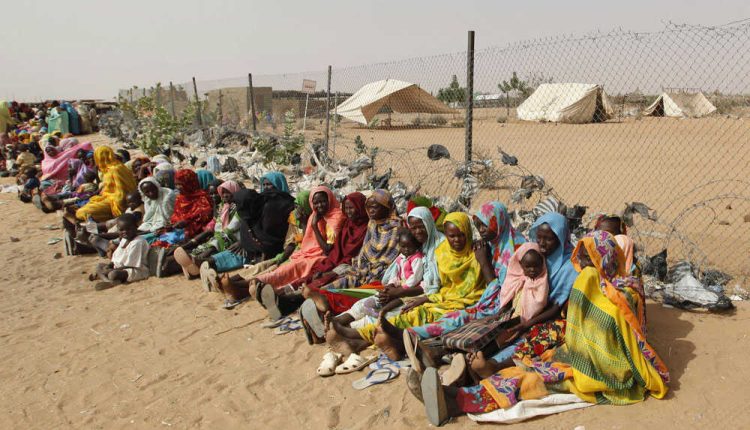Sudan is facing one of the worst humanitarian crises in recent history, with civilian displacement continuing within the country and into neighbouring countries.
Since fighting between the Sudanese Armed Forces (SAF) and the Rapid Support Forces (RSF) exploded in mid-April, an estimated 6.1 million people have fled their homes, making Sudan the country with the largest number of displaced people in the world. Before the fighting, there were 3.7 million internally displaced persons (IDPs) in Sudan.
About 4.9 million people have been displaced within Sudan and have pursued refuge in 5,191 locations across all of Sudan’s 18 states, of whom about 33,300 people were newly displaced, according to the International Organization for Migration Displacement Tracking Matrix (IOM DTM).
Moreover, the majority of people are internally displaced, about 68 percent or 3.3 million originally from Khartoum have fled the city.
Most of the displaced people have taken refuge in South Darfur followed by River Nile, East Darfur, White Nile, Aj Jazirah, Northern, and North Darfur states.
In addition to the internal displacement, at least 85,800 people fled Sudan over the past month seeking safety and protection in neighbouring countries, bringing their total numbers since April 2023 to 1.2 million people, according to the latest figures from UNHCR.
People have crossed into neighbouring Central African Republic (CAR), Chad, Egypt, Ethiopia and South Sudan.
Since the fight broke out, the RSF has been moving southward and has taken over most of Khartoum. The RSF said earlier this month that it had seized an army base in the area.
At the same time, they also succeeded in seizing the majority of the western Darfur region.
According to analysts, this has given the RSF more impetus to solidify control over the largest possible portion of the nation, strengthening its negotiating stance in the ongoing peace negotiations.
Recently, fighting has exploded in the Jebel Awlia area, an impoverished district in southern Khartoum state, also causing the displacement of thousands.
The local “emergency room” volunteer group said in statements that civilians were killed in raids by the Rapid Support Forces, as well as in the crossfire as the army and RSF traded gunfights in the area.
The ongoing conflict has also resulted in the damage of a bridge over the Jebel Awlia dam south of Khartoum, the latest piece of key infrastructure to suffer in a seven-month war, which both parties fighting blame each other for.
Although it was unclear how much damage had been done to the dam, significant damage raised the possibility of the White Nile flooding severely. A vital oil depot and a bridge in the capital Khartoum suffered damage in recent weeks due to strikes, for which the two forces also laid blame on one another.


